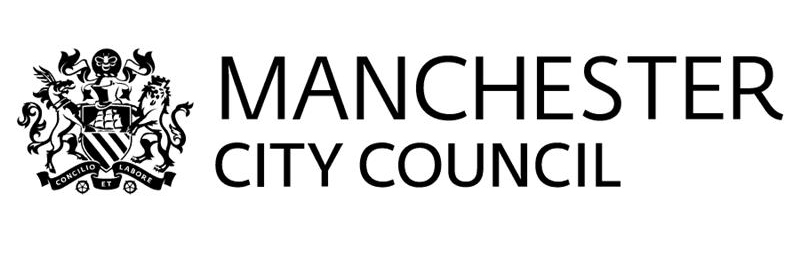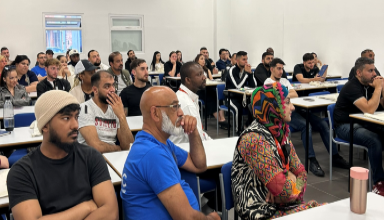The opportunities available within the Beginner's Academic English skill program offers students the skills they need to successfully communicate in everyday settings and work/academic environments. The program will support the student's language development, in areas like spoken and written English. As well as listening and reading. It will provide them with the confidence to communicate more successfully within their everyday lives, not just in an academic setting. They will have the opportunity to practice and perfect their written skills, for example replying to emails professionally. Also, their confidence in communication will improve their skills to successfully perform presentations and work effectively in teams. Offering them the skills and practice within listening proficiency enhancing confidence to understand basic questions and highlight specific details within conversational and spoken passages. This can successfully prepare them for job interviews and punctuality in the future.
Module 1
Listening proficiency
The Beginners Academic Englis skills Level 1 Listening Proficiency Module is designed to help beginners improve their ability to understand and respond to everyday spoken English. This module focuses on listening to short, clear conversations, instructions, and dialogues that are relevant to real-life situations. Students will practice understanding key information, identifying main ideas, and following simple instructions in English
By the end of this module, learners will have the skills to follow basic conversations, understand simple messages, and engage in everyday communication.
Learning outcomes:
- Recognising and understanding the general meaning of spoken texts and identify the main ideas or themes.
- Students should be able to listen for and identify specific details such as names, dates, locations, or actions.
- Learners should be able to understand spoken English from various regions or dialects, recognising diverse accents and pronunciations.
- To be able to answer questions based on a spoken text, demonstrating an understanding of the content.
Module 2
Confidence in communication
The Confidence in Communication module is designed to help beginners gain the skills and confidence they need to communicate effectively in English. This module focuses on improving speaking and listening skills through practical, everyday scenarios, such as introductions, asking questions, making requests, and expressing opinions. Students will build self-assurance in speaking English, whether in the classroom, at work, or in social settings.
Learning outcomes:
- Give Directions: Learners can give and follow directions in various contexts (e.g., to a location or using public transportation).
- Express Preferences and Opinions: Learners can express their likes, dislikes, and opinions on familiar topics (e.g., food, hobbies, and free time).
- Make Requests and Suggestions: Learners can make polite requests and suggestions in different social situations (e.g., asking for help, suggesting a plan).
- Describe Events and Experiences: Learners can talk about past experiences, future, and current activities using appropriate tenses.
- Use More Complex Sentences: Learners can form more complex sentences using conjunctions (e.g., and, but, because) and modals (e.g., can, should).
Module 3
Foundations and grammar and writing skills
The Foundations of Grammar and Writing Skills module is designed to provide English learners with the essential grammar rules and writing techniques they need to communicate clearly and accurately in written English. This module will help students develop their writing skills, enabling them to write simple sentences and paragraphs for a variety of everyday purposes. Emphasis will be placed on mastering basic grammar structures, sentence formation, and punctuation, all of which are crucial for effective written communication.
Learning outcomes:
- To be able to construct simple, compound, and complex sentences. Recognise subject-verb agreement and apply it in writing. To identify sentence components (subject, verb, object) and their order in basic sentences.
- To understand and use present, past, and future tenses. To correctly form and use simple present, present continuous, simple past, and future simple tenses and recognise and use correct time expressions related to each tense.
- To identify and use basic prepositions of place, time, and direction (e.g., in, on, at, to, for, with) and demonstrate correct use of prepositional phrases in context.
- To Use subject and object pronouns (he, she, it, they, etc.) correctly in sentences. Understand and use possessive pronouns (my, your, his, her, its, etc.) and apply possessive forms (apostrophes) with singular and plural nouns.
- To form and answer basic questions using the correct word order for yes/no and WH-questions (who, what, where, when, why, how). Understand and use question words to gather specific information.
- To use basic conjunctions (and, but, or, because so) to join words, phrases, or clauses. Understand and apply simple sentence connectors for logical flow in writing.
Module 4
Reading comprehension
The Reading Comprehension module is designed to help English learners develop essential reading skills for understanding simple texts in English. This module focuses on recognizing and understanding basic vocabulary, extracting key information, and making inferences from everyday reading materials. Students will learn to read and comprehend texts such as notices, forms, advertisements, and short stories, and practice answering questions based on what they have read.
Learning outcomes:
- Recognising and understanding the general meaning of spoken texts and identify the main ideas or themes.
- Students should be able to listen for and identify specific details such as names, dates, locations, or actions.
- Learners should be able to understand spoken English from various regions or dialects, recognising diverse accents and pronunciations.
- To be able to answer questions based on a spoken text, demonstrating an understanding of the content.
Open to all UKMC students
- No Prior English Proficiency Needed:
- The course is designed for those who are new to the English language or have limited understanding and want to expand their knowledge and skills to help prepare them academically for a degree course in the future.
- Basic Literacy:
- As this helps with understanding written instructions and learning new concepts in English.
- Motivation and Commitment:
- A willingness to learn and attend classes regularly is crucial for success.prior
Focus on Communication
The course emphasises practical communication skills. Students will learn how to introduce themselves, ask basic questions, make requests, and understand simple instructions.
Speaking and Listening Skills
Speaking: Lessons are interactive, with a strong focus on pronunciation, sentence construction, and common expressions used in daily life (e.g., greetings, ordering food, asking for directions)
Listening: Listening practice includes understanding simple conversations and instructions, often through audio recordings, videos, or live dialogue.
Basic Vocabulary
A key part of the course is building an essential vocabulary. Students will learn words related to everyday topics like family, food, work, shopping, and transportation. Flashcards, images, and role-play are often used to reinforce new words.
Grammar Foundations
Basic grammar topics, such as the present simple tense, articles (a/an, the), plural forms, and subject-verb agreement, will be introduced in simple, understandable lessons. Grammar is taught in context, so students can see how it’s used in everyday conversations.
Reading and Writing Skills
Reading: Learners will practice reading short, simple texts like advertisements, forms, and basic stories. These texts help students recognize familiar words and phrases.
Writing: The writing component focuses on forming basic sentences and writing short paragraphs. Students will practice writing personal information, filling out forms, and writing simple messages.
Interactive Learning
Lessons often involve interactive activities like pair work, group discussions, and role-playing. This encourages students to use English in realistic, social situations, making learning fun and engaging.
Cultural Context
Understanding cultural norms and practices in English-speaking countries may also be part of the curriculum, helping students better integrate into their environment.
Regular Feedback and Support
Teachers provide regular feedback to help students track their progress and work on areas that need improvement. Students are encouraged to ask questions and engage in discussions to ensure their understanding.
Learning Environment
Classroom Setting: The class will typically have a friendly, supportive environment where everyone is encouraged to participate, regardless of their level of fluency.
Technology: Some courses may integrate digital tools, such as language apps, online exercises, or videos, to reinforce the lessons and make learning more accessible.
Outcome
By the end of the course, students should feel more confident in their ability to understand and use basic English in everyday situations. The course provides a foundation for moving on to more advanced ESOL classes, where students can continue to develop their language skills.
Listening Comprehension Assessment
- Objective: To evaluate students’ ability to understand spoken English in common, everyday situations.
- Format: Students will listen to short audio clips or recorded conversations (e.g., a phone call, instructions, or a dialogue in a public setting). Afterward, they will answer simple questions about the content. The questions might include:
- Who is speaking?
- What are they talking about?
- What information or instructions are given?
- Skills Tested: Identifying key details, understanding main ideas, and following instructions.
Reading Comprehension Assessment
- Objective: To assess students’ ability to understand and interpret written English, including simple texts such as advertisements, instructions, and short articles.
- Format: Students will read a short passage or set of sentences and then answer questions related to the text. The questions could ask students to:
- Identify specific information (e.g., names, places, dates).
- Understand the main idea or purpose of the text.
- Make simple inferences based on the reading.
- Skills Tested: Recognising vocabulary, understanding sentence structure, and interpreting the meaning of the text.
Written Essay
- Objective: To evaluate students’ ability to organise and express ideas in writing, using basic English grammar and vocabulary.
- Format: Students will be given a prompt, such as describing their daily routine, explaining a favourite activity, or writing about their family. The essay will typically be about one or two short paragraphs.
- Students are expected to use simple sentence structures and vocabulary that they have learned.
- Grammar and punctuation are assessed, but the focus is on clarity of expression and coherence.
- Skills Tested: Sentence construction, vocabulary use, grammar, and coherence in writing.
Response to a Formal Email
- Objective: To assess students’ ability to write a formal email in English.
- Format: Students will be given a scenario where they must respond to a formal email, such as replying to an inquiry or making a request.
- The task will assess the student’s ability to use polite, formal language and proper email structure, such as addressing the recipient, using appropriate greetings, and ending with a polite closing.
- Skills Tested: Writing formal communication, using appropriate language and tone, and structuring an email.
Spoken Presentation
- Objective: To evaluate students’ speaking skills and their ability to present information clearly in English.
- Format: Students will prepare and deliver a short spoken presentation on a specific topic, such as:
- Introducing themselves.
- Talking about their hobbies or interests.
- Describing their favourite place or activity.
- Explaining a cultural tradition from their country.
- The presentation will typically last 3-5 minutes, and students will be assessed on:
- Clarity of speech (pronunciation, fluency).
- Ability to stay on topic.
- Use of basic vocabulary and grammar.
- Confidence in speaking and engaging with the audience.
- Skills Tested: Speaking fluency, pronunciation, coherence, and ability to use appropriate vocabulary and grammar.
General Structure of Assessments
Formative Assessments: These are ongoing assessments that take place throughout the course, such as quizzes, in-class participation, and regular homework tasks. They help instructors track student progress and provide feedback.
Support During Assessments
Guidance: Teachers will provide support and practice before assessments. For example, they may conduct mock listening tests, writing exercises, or give speaking tips to help students feel more prepared.
Feedback: After assessments, students will receive feedback on their performance, helping them identify areas for improvement and reinforcing their progress.













